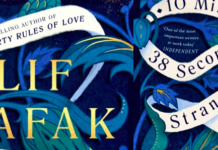Bifo is known not only for being one of the top notch orchestras of Turkey. It also draws attention for the interesting themes around which it creates its programs, highlighting an individual composer, era, or idea in each performance. Its theme for the month of November was a Prokofiev Marathon: Two consecutive performances, on December 13th and 14th, featuring works by Prokofiev, and a very unique third program featuring the new generation of the great composer personified in his grandson Gabriel Prokofiev.
Even a classical music newbie will have heard of Peter & the Wolf and the Romeo and Juliet Ballet Suite. Those have become the trademarks of Prokofiev. Yet, the composer is just as renowned for this great symphonies and concertos. And it were these latter that the marathon highlighted.
During the first two nights, all five of Prokofiev’s concertos were performed. The guest soloist was the internationally-acclaimed pianist Alexei Volodin. Besides his presence in many an international festival, his performances with leading orchestras of the world, and his collaboration in the field of chamber music with such names as Sol Gabetta and the Borodin Quartet, Volodin is also a recording. His work in this field includes a Prokofiev album under the Mariinski label, in which he plays Prokofiev’s 4th Piano Concerto under the baton of world-renowned maestro Valery Gergiev. Hence Volodin was an immaculate star for the evening not for his international acclaim and reception by an eager audience, but as the right artist for an evening of Prokofiev.

The evening began with a cascade of pleasantry finding life in the bubbly allegro movement of Piano Concerto No. 1. The Allegro Scherzando, as its name suggests, final movement was invigorating, but more. It left the audience hypnotized by its zealous, yet intricate energy, and Volodin impressed by his immaculate mastery and technique.
Of the five piano concertos, the most intriguing is perhaps the 4th Concerto, for it is composed for the left hand only. It was composed for and in dedication for early 20th century Austrian composer Wittgenstein following the loss of his right arm during World War I. Mind you that the left-hand is the hand that usually plays the second part in the F-clef. Witnessing a concerto, and a fine one at that, composed and played only by the single left hand was therefore quite astounding.
In both evenings, there were also shorter, pleasant pieces of others sprinkled among the Prokofiev concerts and symphonies. Ernst Krenek’s twelve-minute potpourri for orchestra, composed following the end of WWI in optimism for a better world is absolutely beautiful and delicate. Another was the four-minute 2nd Waltz of Shostakovich, a world-renowned classical favorite and a composition of pure bliss and graceful celebration. I believe that the orchestra played this as a warmer for the upcoming New Year’s Concert. It is a constant of every single new year concert, and always reciprocated by the audience with much delight.
The two-evening program came to an end in the twinkling of an eye. I can now proudly boast that I have listened to every single Prokofiev Piano Concerto live, and played with none other than international star Alexei Volodin. Yet, the “marathon” was not yet over. Two nights on, Borusan was to host a very unique program from a new generation Prokofiev. On December 16th, a new audience got together at Borusan Muzik Evi in Taksim for an unconventional evening of “unclassical music” with grandson Gabriel Prokofiev carrying on his family’s musical legacy into unprecedented grounds. And that, you can read about here.
All images courtesy of Borusan Sanat.










